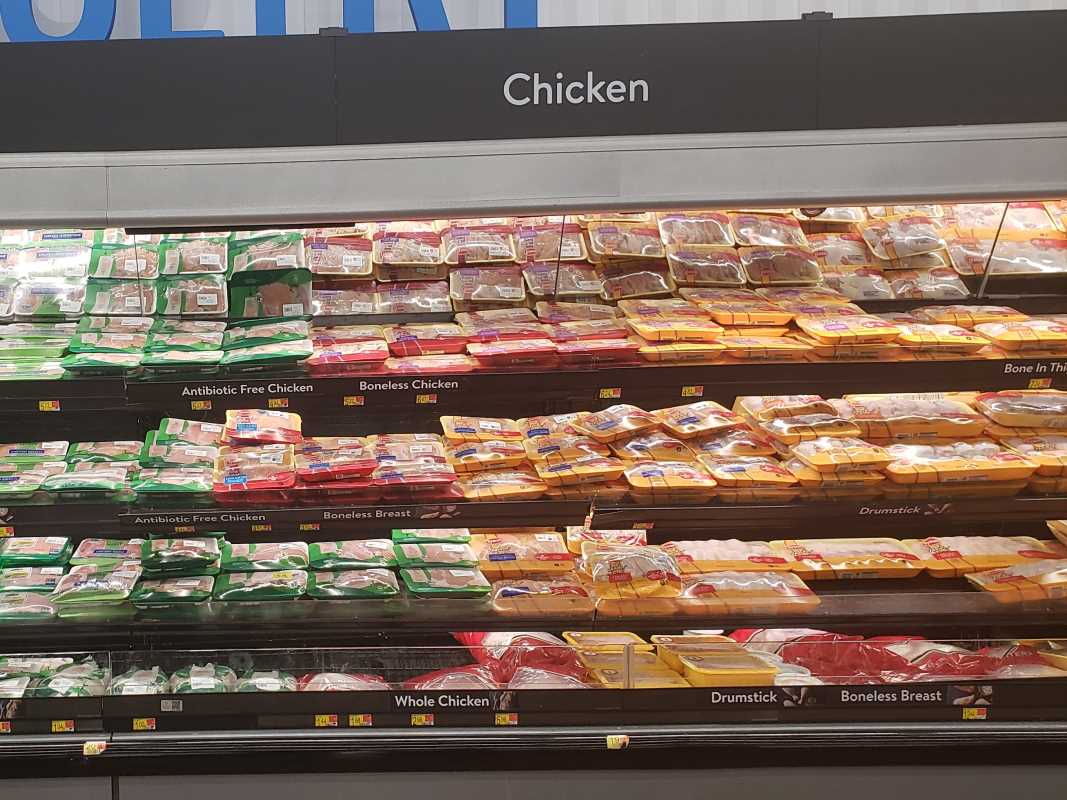Creating a zero-waste kitchen starts with what you bring into it. By adopting smarter shopping habits, you can significantly reduce waste, support environmental sustainability, and even save money. From buying in bulk to avoiding single-use plastics, and supporting local farmers, there are countless ways to make your shopping habits more eco-friendly. Here’s how you can shop smarter to create a sustainable and waste-free kitchen.
Why Focus on Sustainable Shopping?
Sustainable shopping doesn’t just benefit the environment; it provides practical advantages for your home and community. The packaging you avoid, the waste you reduce, and the local businesses you support all contribute to a greener and healthier planet. By rethinking how you shop, you’re not only reducing waste but also cutting down on unnecessary expenses and gaining access to fresher, higher-quality ingredients.
The Case for Bulk Buying
Buying in bulk is one of the most effective ways to reduce packaging waste while saving money. Bulk purchases eliminate the need for excessive individual wrappers and plastic, which often end up in landfills or as pollution in our oceans.
- Reducing Packaging Waste - When you shop in bulk, you typically purchase items like grains, nuts, spices, or dried fruits in large quantities. Instead of taking home multiple small plastic bags or containers, you can transfer these items into reusable jars and containers. Many stores now encourage customers to bring their own packaging, making it easier to live waste-free.
- Saving Money - Bulk items are generally cheaper per unit compared to their pre-packaged counterparts. For example, buying a kilogram of rice in bulk instead of small 500g bags can save you money over time. With fewer marketing costs, no unnecessary packaging, and less processing involved, these savings are passed on to you.
- Personalized Quantities - Shopping in bulk gives you flexibility. Whether you need a small amount of a rare spice or a large quantity of lentils for meal prep, you can buy exactly what you need. This reduces the likelihood of food waste since you’re not forced to buy more than you’ll realistically use.
Tips for Buying in Bulk
- Bring Your Own Containers - Carry reusable jars, cloth bags, or containers to the store. Many bulk shops allow you to weigh your container (known as the tare weight) before filling it, so you only pay for the product.
- Know What You Need - Write a shopping list to avoid over-purchasing. Bulk shopping can be tempting when you see so many options, but excessive quantities may lead to waste.
- Find a Bulk Store Near You - Research local bulk stores or co-ops. Many offer a wide selection of foods, household items, and even cleaning supplies.
Avoiding Single-Use Plastics
Single-use plastics are one of the biggest culprits of waste in modern shopping. From plastic bags to cling film and disposable produce bags, these items often have a short lifespan but a long-term impact on the environment.
The Environmental Cost of Single-Use Plastics
Globally, millions of tons of plastic waste are produced each year, with much of it ending up in landfills or waterways. These plastics take hundreds of years to decompose, leaching toxic chemicals into the soil or being ingested by marine life. By avoiding single-use plastics in your shopping habits, you’re taking a stand against pollution and protecting ecosystems.
Smart Alternatives to Single-Use Plastics
- Reusable Cloth Bags - Switch to using cloth bags or mesh produce bags for fruits and vegetables. They’re lightweight, washable, and far more durable than plastic.
- Glass or Stainless Steel Containers - Use reusable containers for items like deli cuts, cheese, or prepared foods. Many stores are happy to accommodate eco-conscious buyers who bring their own packaging.
- Beeswax Wraps - Instead of using plastic wrap for leftovers or to cover bowls, invest in reusable beeswax wraps. They’re a sustainable and aesthetic alternative for food storage.
- Avoid Overpackaged Items - Be mindful of overengineered packaging. For example, shop for loose produce instead of pre-packaged fruits and vegetables. Look for products sold in glass jars or cardboard boxes, which are more easily recycled.
Practical Tips to Minimize Plastic Waste
- Carry reusable bags wherever you go—not just for groceries but for any kind of shopping. Many fold into small pouches that fit easily into a pocket or handbag.
- Choose biodegradable or compostable trash bags for your kitchen and avoid plastic liners whenever possible.
- If you enjoy sparkling water or soda, consider investing in a soda maker to reduce the waste that comes from single-use bottles or cans.
Supporting Local Farmers
One of the most impactful changes you can make is supporting your local farming community by purchasing fresh, seasonal produce directly from them. By doing so, you’re not only reducing waste but also bolstering your local economy.
Benefits of Buying Local
- Fresher Produce - Fruits and vegetables from local farmers are typically harvested at peak ripeness, meaning they’re fresher, tastier, and more nutritious. Compare this to supermarket produce, which is often picked prematurely and transported across great distances.
- Reduced Carbon Footprint - When produce doesn’t have to travel thousands of miles to reach your plate, the energy and emissions associated with transportation are significantly reduced. Local food is a sustainable choice that supports the environment.
- Less Packaging - Farmers’ market produce is often sold without the unnecessary plastic coverings you’ll find in supermarkets, making it easier for you to stick to waste-free practices.
How to Incorporate Local Shopping
- Visit Farmers’ Markets - Regularly explore farmers’ markets in your area. These locations often offer everything from organic vegetables to handmade pasta and dairy products. Bringing your own bags and containers helps ensure your shopping is waste-free.
- Community-Supported Agriculture (CSA) - Join a CSA program, which delivers a box of fresh, seasonal produce directly to your home. You’ll not only reduce your reliance on grocery stores but also enjoy a surprise variety of ingredients each week.
- Buy Local Staples in Bulk - Many local farms sell staples like grains, honey, or flour in bulk. They may also offer refill stations or discounts for repeat customers who bring their own containers.
Making It a Routine
Transitioning to sustainable and zero-waste shopping habits might seem daunting at first, but with time and practice, they can become second nature.
- Organize Your Tools - Keep reusable bags, jars, and containers in an easily accessible place, such as your car or an entryway cabinet. This will ensure you’re always prepared when heading to the store or market.
- Plan Ahead - Think through your meals for the week and make a detailed shopping list. Planning helps you avoid impulse buys, stick to your zero-waste goals, and minimize food waste at home.
- Start Small - You don’t have to overhaul your entire routine overnight. Start with one change—like bringing reusable bags to the grocery store—and build on your efforts as they become habits.
- Learn and Adapt - Every household is different, so take note of what works best for yours. For example, some people may find it easier to prioritize buying in bulk, while others may focus on local shopping or avoiding plastics first.
Sustainable shopping habits extend beyond the immediate benefits for your kitchen; they’re part of a larger movement to protect our planet. By choosing bulk items, avoiding single-use plastics, and supporting local farmers, you’re contributing to a global effort to reduce waste and promote sustainability. Small actions, done consistently, can lead to big changes for our environment and communities.
Take pride in every step you take toward a zero-waste kitchen. Whether it’s filling a jar with rice at a bulk store or buying fresh tomatoes from a local farmer, these actions make a difference. Together, we can redefine what it means to shop smarter and create a more sustainable future.







